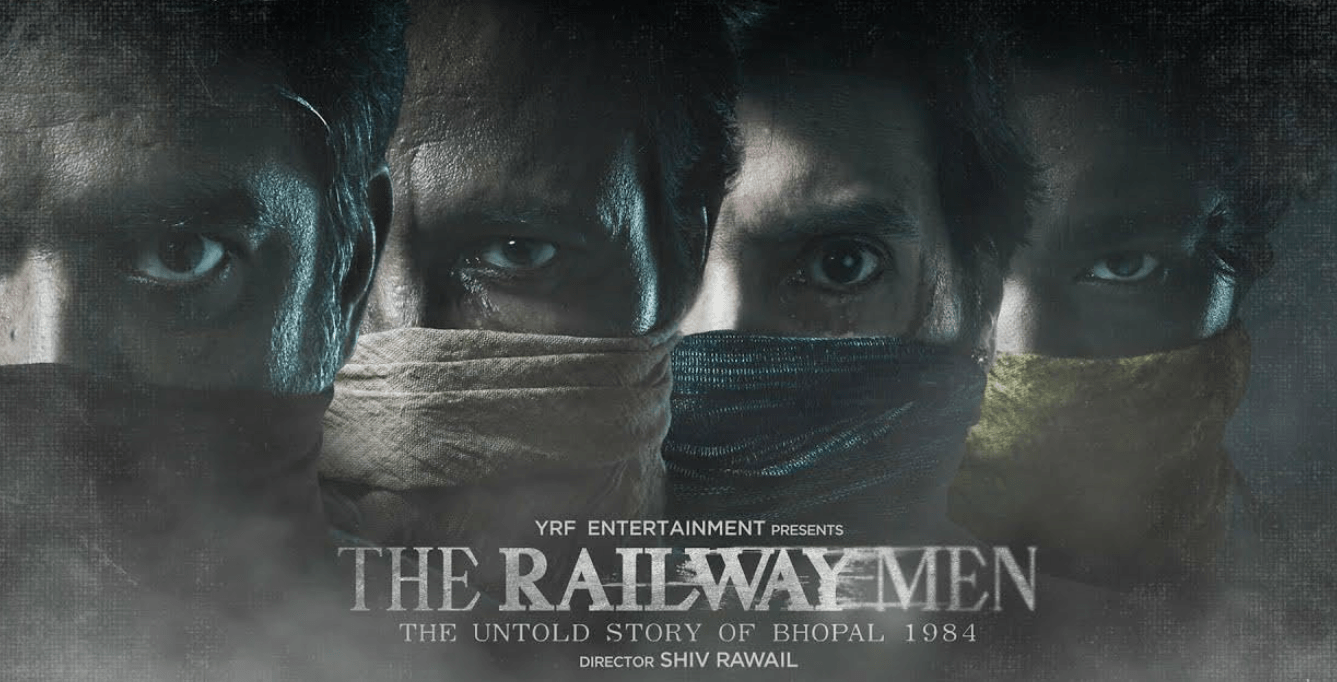Spoiler Ahead!
If you think that The Railway Men is about the Bhopal gas leak tragedy case, be aware that it is not, and reset your expectations. As the makers themselves say on the series, this is a work of fiction inspired by real-life events, with the hazardous chemical leakage event that happened in Bhopal in the year 1984 taking a backseat. The 4 episodes series was recently released on Netflix, on 18th November this year.
A glimpse of the disastrous corporate negligence
Following a punchy introduction with a narration of how the common man’s life and brave, extraordinary efforts are of no value in this country, The Railways Men, The Untold Story of Bhopal 1984, begins with a slow start. There are enough signs and evidence to show that several things in the Union Carbide factory are wrong, and there is even a professional report highlighting the problems, yet the management refuses to take these concerns seriously.
The management did not even care to train employees to handle highly possible accidents professionally to prevent harm. Showing the panic employees experience and the sheer neglect of the management justifies the perspective that there is no value in a man’s life in this country!
The Railway Men‘s cast – a case of wasted potential for many roles?
The main actors in the cast are Kay Kay Menon, Babil Khan, and Divyendu Sharma, then there are a couple of foreign actors, namely Philip Rosch and Connor Keene, and … Madhavan. The Netflix poster shows R Madhavan at the centre, but by the time Maddy appears on screen, you would have almost forgotten that the series The Railway Men does include him. You don’t see him playing any of the major roles initially, and when he finally is introduced, you feel bad and realise that his acting skills are just wasted.
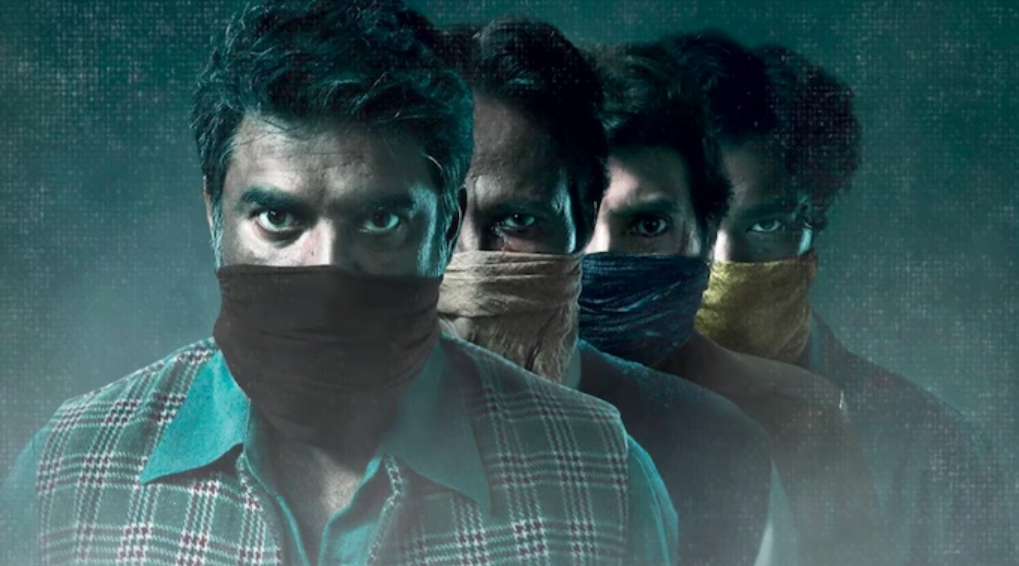
One would get the feeling that Philip Rosch and Connor Keene were hired only because the makers needed a couple of white guys to deliver some dialogue. It is probably because the writers spent all their energy on writing character sketches and lengthy, absolutely unnecessary, heavily emotional dialogue for the roles of the station master, Iftekaar Siddiqui (played by Kay Kay Menon) and the robber pretending to be a cop, Balwant Yadav (played by Divyendu Sharma) that all the other characters, even Maddy’s, come across as dry.
The narration – an overwhelming amount of drama
As the narrators walk us through everyday workplace antics and the lives of responsible employees and irresponsible employees, we have a surprise element: there is a parallel story of haters and goons, strong followers of Indira Gandhi, who are checking a running train for anyone Sikh to attack, following the murder of the prime minister. What is the relevance of this mob attack to the current story? Did the makers just try to cover two major national events from that period and the consequences in one series?
The Railway Men is classified as both “TV thriller,” and “TV drama,” and if you are a thriller fan, you might find yourself waiting, waiting, and waiting for that thriller moment, a scary event or plot twist in the story, a moment that will never come. The drama easily erases any room for a thrilling experience.
That’s not it, there are a few twists and turns in this story, then there is a wedding that may go wrong if unexpected demands are not met, then the story of a girl being bullied by her peers for losing in a competition, and more. By this time, it begins feeling like you are watching an Indian TV soap opera that’s running endlessly simply because the makers don’t want it to end.
The Railway Men is classified as both “TV thriller,” and “TV drama,” and if you are a thriller fan, you might find yourself waiting, waiting, and waiting for that thriller moment, a scary event or plot twist in the story, a moment that will never come. The drama easily erases any room for a thrilling experience.
Characters that are interesting as they don’t choke you with emotions
Dibyendu Bhattacharya plays the role of a senior staff member at the factory, Kamrudin – the dialogue written for this role is probably the most realistic and relevant to the main story. Babil Khan plays the role of a young employee, a loco pilot, in the railway department, Imad Riaz, who worked at the factory earlier and is aware of everything going wrong there, including the fatal harm that MIC can cause.
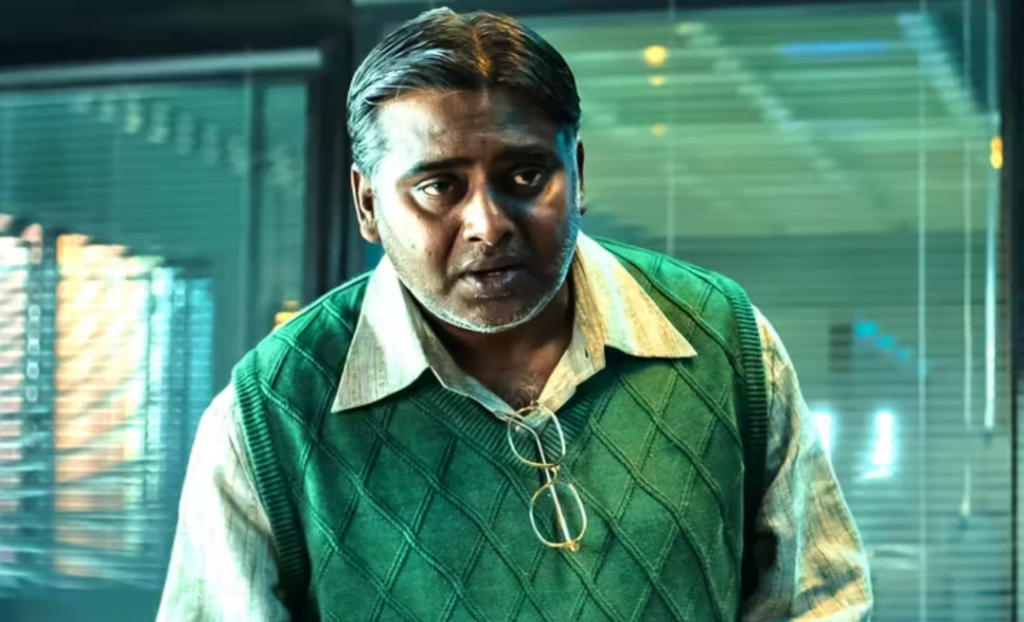
Another interesting character is a journalist Kumawat (played by Sunny Hinduja, and inspired by the real-life investigative journalist Rajkumar Keswani), who is determined to expose the illegal actions of the management. Imad and Kamrudin are Kumawat’s key sources of information. All these actors have played their roles well, leaving a good impression on us. Babil Khan’s performance is outstanding.
Poorly written female characters
Feminists would complain if there are not enough female roles, so there are some women. A few female characters who get notable screen presence are a cleaner lady at the Bhopal Jn. station, a widowed woman whose husband died at the factory because of the management’s neglect of safety precautions, Kamrudin’s wife, and DG Rajeshwari Janglay (played by Juhi Chawla).
There can’t be an Indian script without some degree of romance involving one or more of the lead actors in any genre, so there is another unnecessary subplot of a complicated relationship between Rati and Rajeshwari. You feel like you paid for a simple veg burger and got one with ten patties stuffed inside.
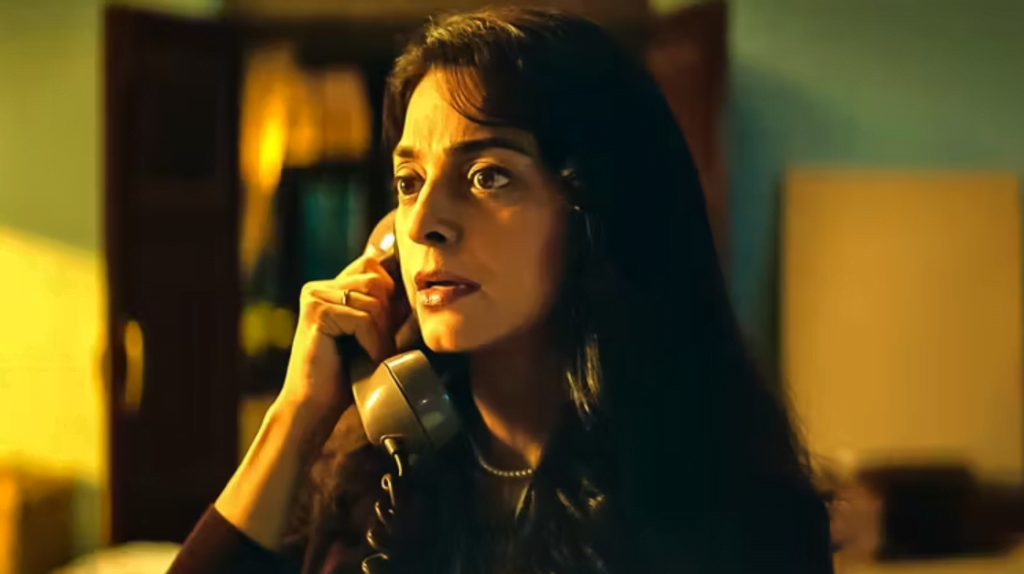
When Rajeshwari cusses using the f-word when she is threatened by a man representing Union Carbide, you are left to wonder, was the f-word in use back then in India or did we time-travel? We understand why that man is all smiles because you might find yourself giggling, too, at the brilliance of the dialogue for a brave female government officer in that day and age!
Good, they decided to stop it there and did not show her waving an LGBTQ+ flag or using ChatGPT to seek quick solutions. Quite progressive and powerful, a real role model for young Indian women she is!
The Railway Men- an overwhelming drama for a brief series
Towards the end of the third episode and in the final episode, you begin thinking if this is some kind of dark comedy that we are too naïve to understand. There is a major accident that is a big threat to the lives of several thousands of people, Rati is committed to saving them, but he accuses Rajeshwari of not putting in enough effort to help save them she insists that she is doing her best, then the two have a long call about how they miss each other and how they plan to reconnect – when so many lives are at stake!
Also, we don’t know if the station master got PTSD from a past event that he must walk us through, while running around, saving lives, or if was he exhausted by all the emotional dialogue himself. You are too tired to ask how these guys are not just alive, strong, and running but are also energetic enough to narrate sentimental stories and self-assess their morality when people are dying and bodies are dropping all around them just like that.
Only in the final episode, the writers probably remember that one must not forget the importance of the gas leak disaster, so they walk us through the consequences of the incident, the lives of widows and children of the victims, and how pathetic their living conditions are even today.
It would have been appropriate had they named this series “Personal lives of 5 sentimental men in the wake of a tragic event.” In the first three episodes, the tragedy plays the role of the typical helpless woman in Indian cinema – the incident is there for just show, to attract more audience, while all the focus is on the sentiments of different men. Iftekaar and Balwant seem to have made up for all the apathy and invulnerability of all male characters in Indian cinema history.
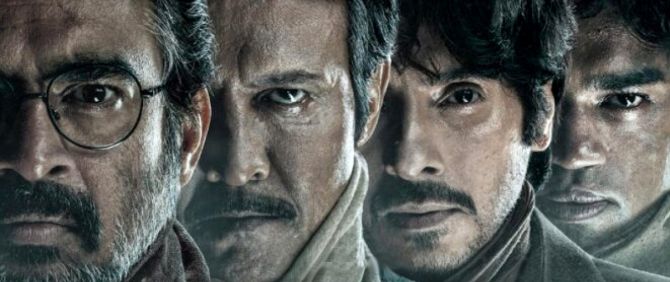
To conclude, the idea of a tribute to the real-life heroes could have been better told by simply telling the audience how each of them contributed in their ways to save as many lives as they could, the practical challenges they faced and the bold moves and risks they took.
But unfortunately, the tribute is blurred by all the intense focus on the past, personality, integrity, and morality of each one of these men, not to mention, all the other stories the makers desperately want to fit in.
About the author(s)
Lakshmi Prakash is a data scientist. She sees practicing equality, humanity, and science as the only possible path to a progressive future and holds that the absence of any one of these will negate any growth in other areas. Her hobbies include reading fiction and non-fiction, learning something new, brisk-walking, cycling, and writing a chapter only to forget where she saved it.
